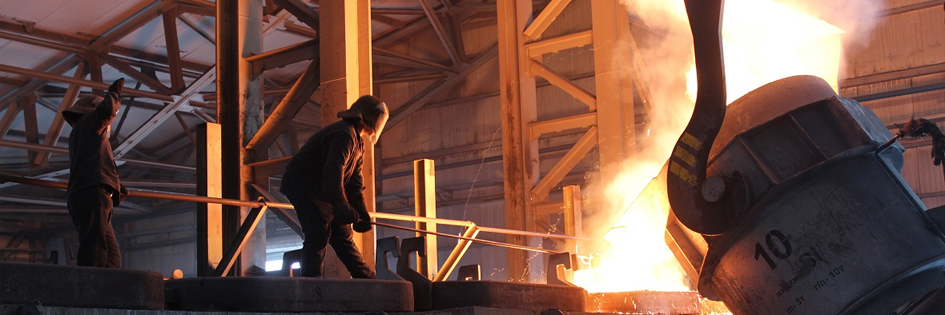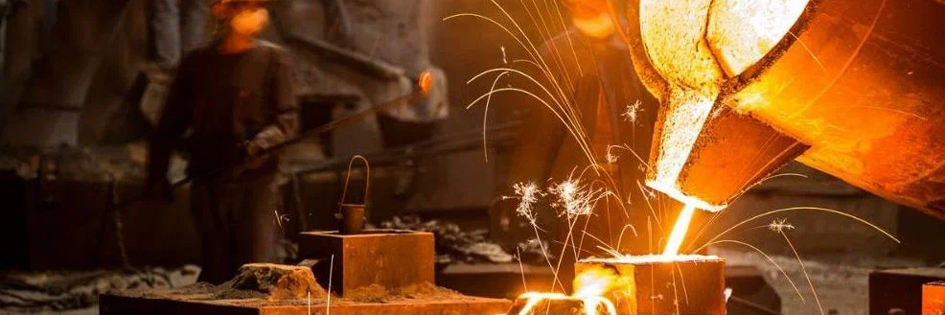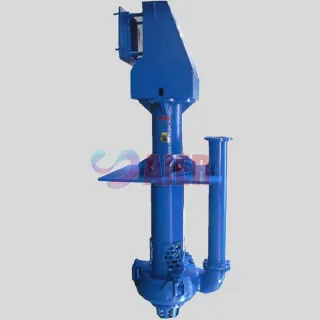Sump Pump
A sump pump is a vital piece of equipment designed to remove accumulated liquids, sludge, and slurry from sumps, pits, and low-lying areas in industrial and municipal facilities. At Aier Machinery Hebei Co., Ltd., we specialize in providing a wide range of pumping solutions, including sump pumps, slurry pumps, dredge pumps, sewage pumps, and clean water pumps. With years of experience in pump design and manufacturing, our company is dedicated to producing durable, efficient, and reliable pumps that meet the demanding requirements of modern industrial processes.
Our industrial sump pumps are engineered to handle a variety of fluids, including water, wastewater, slurry, and chemically aggressive liquids. Constructed from high-quality materials such as stainless steel, ductile iron, and corrosion-resistant alloys, these pumps provide long service life and superior wear resistance. They are ideal for applications in wastewater treatment plants, chemical processing facilities, mining operations, and municipal drainage systems.
Designed for versatility and ease of maintenance, our sump slurry pumps feature modular construction, allowing for quick replacement of wear parts such as impellers, liners, and bearings. Both vertical and submersible configurations are available, providing flexibility for different site conditions and installation requirements. With advanced hydraulic design, these pumps deliver stable flow rates, high efficiency, and reliable operation under continuous or heavy-duty conditions.
As a trusted sump pump manufacturer, Aier Machinery Hebei Co., Ltd. combines modern design tools, including CFD and CAD analysis, with rigorous quality control to deliver pumps that meet the highest industry standards. Investing in our high-quality sump pumps ensures reliable liquid handling, reduced maintenance costs, and long-term operational efficiency, making them an ideal choice for industrial, municipal, and wastewater applications worldwide.
What Does a Sump Pump Do?
A sump pump is a specialized pump designed to remove accumulated liquid, usually water or slurry, from a sump pit or low-lying area in industrial, mining, or municipal settings. Its primary purpose is to prevent flooding, waterlogging, or overflow in basements, mines, or industrial plants. In industrial applications, a sump slurry pump is particularly important for transporting abrasive or corrosive slurries from collection pits to processing or disposal units.
Industrial environments often require industrial sump pumps that are robust enough to handle continuous operation with harsh liquids, debris, or solids. These pumps are engineered for durability, using wear-resistant materials and corrosion-resistant alloys to ensure reliable performance over time. For example, high chrome alloy impellers and stainless steel casings are common in high quality sump pumps used in mining, chemical, or wastewater treatment applications.
A sump pump operates by drawing fluid from a sump pit and discharging it to a safer location, such as a treatment tank, drain, or holding basin. In slurry applications, a sump slurry pump ensures that heavy solids, sediments, or aerated liquids are transported efficiently without clogging or damaging the pump. Working with a reputable slurry sump pump supplier ensures that the pump is suitable for specific slurry characteristics, including abrasiveness, density, and chemical composition.
Modern sump pumps are designed for both automatic and manual operation. Industrial sump pumps often include level sensors, float switches, and control panels that allow automatic start and stop based on liquid levels. This is essential in preventing overflow, equipment damage, and safety hazards in industrial facilities.
Additionally, a high quality sump pump reduces maintenance costs by incorporating replaceable wear parts, corrosion-resistant liners, and easily serviced bearings. Leading sump pump manufacturers like Aier Machinery Hebei Co., Ltd. focus on producing pumps that combine high efficiency, durability, and operational reliability for a wide range of industrial applications.
Why Is It Called a Sump Pump?
The term sump pump originates from the word “sump,” which refers to a low-lying pit, basin, or depression where liquids, wastewater, or slurry naturally accumulate. In industrial and mining operations, sumps are often used to collect process water, chemical slurries, or sediments before they are pumped to treatment or disposal systems. A sump pump is the device responsible for removing these accumulated liquids, keeping the sump functional and preventing overflow.
In slurry-handling applications, a sump slurry pump is designed to efficiently handle highly aerated, abrasive, or dense mixtures. These pumps are essential in mining, mineral processing, and chemical plants, where solids in suspension must be transported from the sump to a processing or disposal point without clogging or excessive wear.
Industrial sumps require industrial sump pumps with durable construction and high efficiency. Features such as heavy-duty impellers, corrosion-resistant casings, and replaceable liners are common in high quality sump pumps, ensuring long-term reliability even under harsh conditions. Leading sump pump manufacturers offer custom solutions tailored to specific sump dimensions, slurry properties, and flow requirements.
The concept of a sump is critical because it naturally collects liquid at the lowest point of a system, making it the optimal location to install a pump for continuous liquid removal. This is particularly important for systems where unattended operation is required. Automatic sump pumps often include float switches or sensors that detect liquid levels, triggering the pump to operate and maintain safe conditions.
In addition to mining and industrial applications, sumps are used in wastewater treatment, chemical plants, and power plants, demonstrating the versatility of sump pumps. A reliable slurry sump pump supplier ensures the pump is designed to withstand abrasive and corrosive slurries, reducing maintenance frequency and preventing operational downtime.
What Is the Difference Between a Sump Pump and a Regular Pump?
While both a sump pump and a regular pump are designed to move liquids, they differ in design, application, and operational requirements. A sump pump is specifically engineered to handle liquids accumulated in sumps, pits, or low-lying collection areas, often containing solids, debris, or abrasive slurry. In contrast, a regular pump, such as a centrifugal pump or chemical pump, is typically designed for transferring clean water, chemicals, or other fluids in a pipeline system.
A sump slurry pump is a specialized type of sump pump that handles abrasive and aerated slurries. Its impellers and volutes are designed to accommodate solids in suspension without clogging, and materials are selected for wear and corrosion resistance. A high quality sump pump from a reputable sump pump manufacturer ensures that abrasive particles, sediments, and aerated liquids are efficiently transported with minimal maintenance.
Another key difference is installation and operation. Sump pumps are usually installed at the lowest point of a system where liquid accumulates, allowing gravity to feed the pump. Regular pumps may be installed in-line, above ground, or at the source of the liquid. Industrial sump pumps often include automatic control features, such as float switches and level sensors, enabling the pump to operate based on liquid levels, whereas regular pumps may require manual operation or separate control systems.
Durability and wear-resistance are also distinguishing factors. Sump pumps, especially sump slurry pumps, are built to withstand harsh environments, abrasive solids, and chemical exposure. Materials such as high chrome alloys, rubber linings, and stainless steel are common in high quality sump pumps. A trusted slurry sump pump supplier or sump pump manufacturer can provide pumps tailored to specific slurry densities, chemical compositions, and flow rates.
Finally, maintenance considerations differ. Sump pumps are often exposed to slurry and solids, requiring modular designs and replaceable wear parts to ensure long-term performance. Regular pumps handling clean liquids may not require the same level of abrasion-resistant materials or serviceability.



